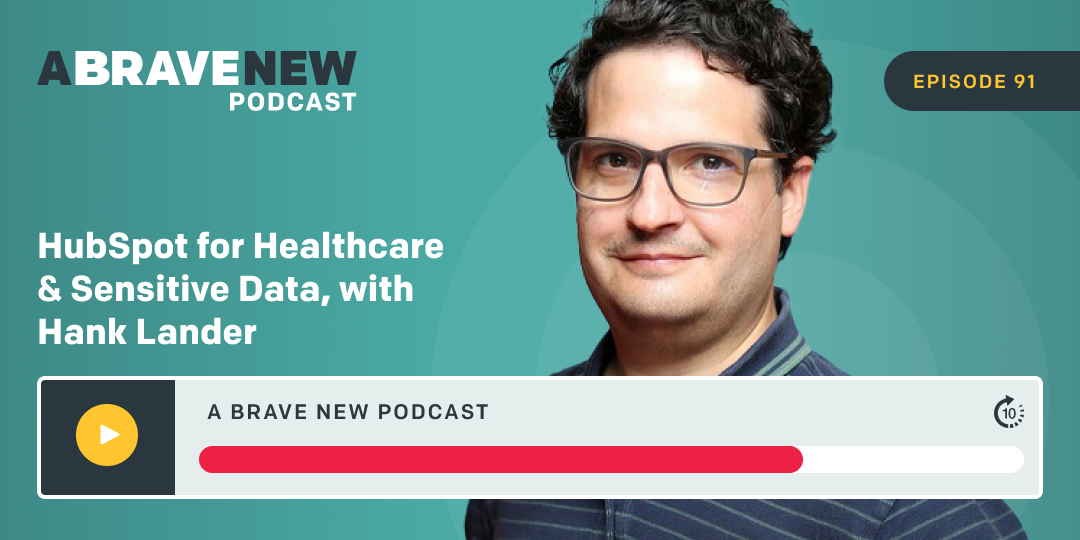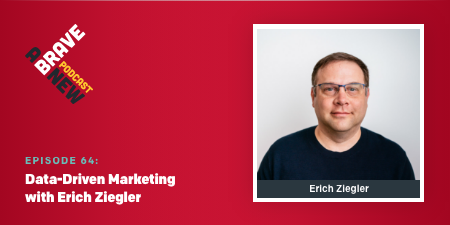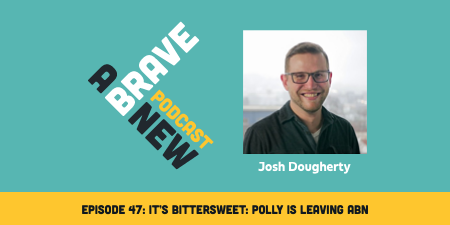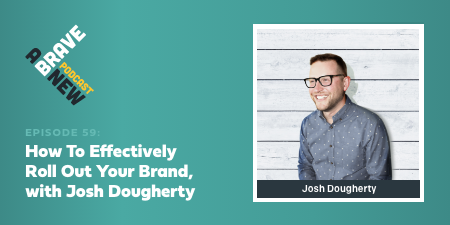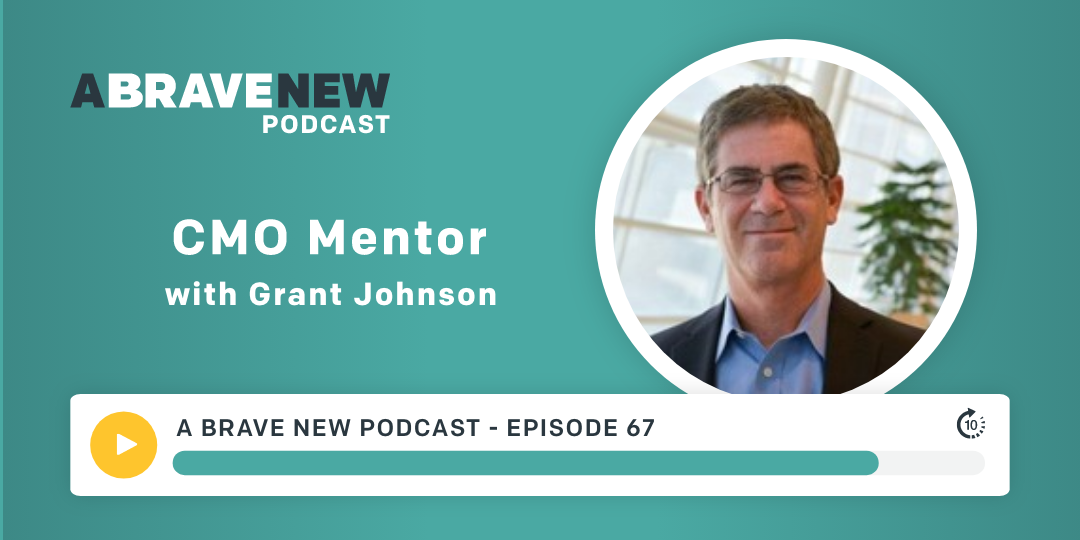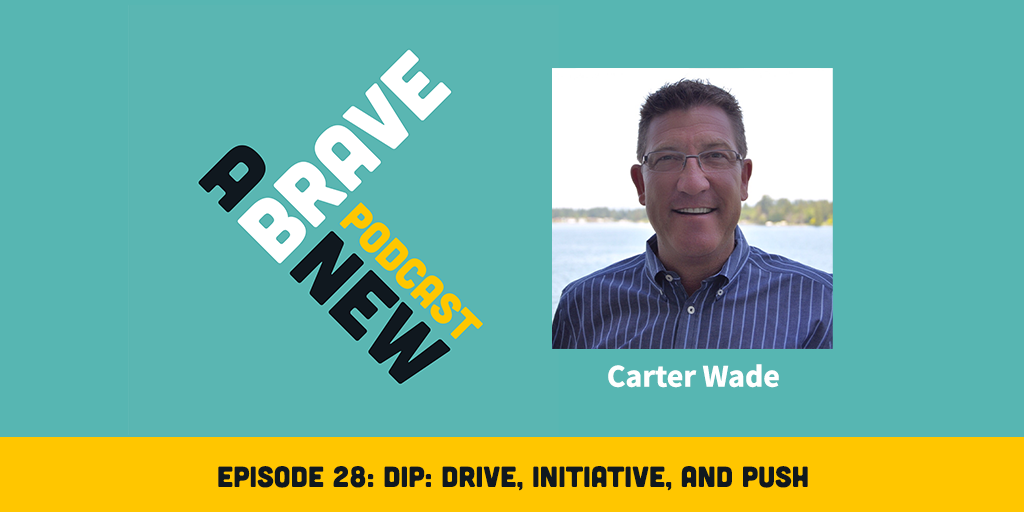Ben Slager is a seasoned account manager currently working as Principal Customer Success Manager at HubSpot. He resides in Seattle with his wife and Siberian cat, Ladyhawke.
Ben has extensive experience managing customers and helping them solve complex challenges. He’s worked in a broad spectrum of industries from non-profit fundraising to healthcare to tech. Ben holds a Bachelor’s degree in Business Administration: Marketing from Dordt College.
Away from work, you can find Ben supporting all the Seattle sports teams, playing indoor soccer, campaigning with his friends in D&D, or relaxing with his family on the couch.
What you’ll learn about in this episode:
- The important role listening and asking good questions play in solving problems
- What HubSpot product releases/enhancements announced at Inbound 2022 Ben is most excited to share with his clients
- How HubSpot has evolved it’s platform to better serve large enterprise clients
- Operations Hub, it’s capabilities and how it helps HubSpot fulfill on the promise of being an all-in-one CRM
- Ways you can utilize Service Hub even if your business doesn’t need a customer help desk or ticketing system
- Simple hacks Ben has learned to keep your HubSpot portal running efficiently and smoothly
Additional resources:
Transcription:
Intro: Welcome to A Brave New Podcast, the podcast all about how big ideas, brave thinking, and marketing smarts help businesses grow. Here is your host, Josh Dougherty.
Josh: Hello, and welcome to A Brave New Podcast. My name's Josh Dougherty, I'm your host. Really excited to have you on today.
As many of you may know, we are avid believers, here at A Brave New and HubSpot, or HubSpot Partners. I think the official title would be that we're HubSpot Solution Partners. We've committed to it as kind of our platform of choice for doing CRM, marketing, CMS, everything for our agency. And today, we have the privilege of having Ben Slager, who works in Strategic Accounts at HubSpot, join us to share a little bit about his perspective of how HubSpot can benefit enterprises, the exciting stuff that's going on there. And so, really excited to have him on and give us a bit of an insider view into the platform.
Hey Ben, good to have you.
Ben: Hey, thanks for having me, Josh.
Josh: Yeah, of course. Well I'd love, as we get started, for you to just tell us a little bit more about what you do for HubSpot Strategic Accounts.
Ben: Sure. I think my official title is Principal Customer Success Manager in Strategic Accounts, which is a mouthful, and nobody needs to pay attention to half of those words.
Josh: That's why I didn't say your title at the beginning.
Ben: I barely remember it myself. But mostly, what I provide for my customers is I act as a consultant to make sure that they're getting the most out of their product that they purchase with us. Making sure they're taking advantage of all of the features that they're paying for, identifying growth opportunities. Not necessarily just for us on the HubSpot side but more so on the customer side, to make sure that they're growing their business, in addition to fully utilizing the HubSpot product.
So, it's a bit consultant. It's a bit growth specialist. It's a bit generalist. I tend to know enough to be dangerous, and then will tap other smarter, specialized people within the organization. So, you're all-around account manager, you could say.
Josh: Yeah, this is part of why I was so excited to have you on. Because I think a lot of people know what they know about HubSpot, but you're actually focused on getting people to maximize the platform. And so, that made me really excited, because I think our audience can benefit from having someone share about all the kinds of in-depth things that they're thinking about day-to-day and get outside of their perspective of what HubSpot is.
So, your career has been pretty interesting. You've had a journey from agencies into healthcare, now into tech. I think that gives you an interesting perspective. Hopefully, you do as well. But I'd love to hear how you think having this type of varied experience has helped you approach your work with customers differently.
Ben: Yeah. There's a lot of good examples, I think. I started my career at a full service marketing agency, which gave me a great foundation for understanding how marketing works and the fundamentals of how humans go through the process of wanting to buy something. And then, layered that on top of working at a startup at a healthcare company, that was changing constantly and constantly revamping its business processes and organization structure.
So, those two different experiences have really helped me, as I've now transitioned over to HubSpot, where things are a bit more settled. But it gives me kind of a unique perspective of working in a few different fields and being able to speak to my customers in depth about marketing and also healthcare. But just generally understanding how organizations are structured by working in different-sized companies and seeing a company that has experienced a lot of growth. I think a lot of times identifying with the pain that my customers are feeling, from these growth conversations, is really helpful in terms of building trust and goodwill. And then, also helping them understand problems, as well. And solution-ing those.
Josh: I totally agree with that, getting different perspectives. One of the things in your answer you were talking about how having experience in different companies gives you perspective. And before we jump into talking about the platform, and talking about HubSpot as a product, I wanted to hear a little bit about your thoughts about the company, because I've always been really impressed by their culture, and you've come from multiple different places. So, you've had that experience at multiple places.
What are the best parts about their culture? I think they really invest in it, a lot. And that's part of what makes them a special organization.
Ben: Yeah. Two things specifically that stick out in my mind. I had the opportunity to attend the inbound conference, which is HubSpot's annual marketing conference, before I decided to work at HubSpot. And I was so impressed by the quality of speakers, and just how impressive all of the people I met that worked at HubSpot were, at that conference.
Another thing that they did is they elevated employees of the company, who were just working in entry level positions, to present at that conference. And I thought a company that takes the time to invest in all of its employees, and elevate them, and give them the resources to prepare a really incredible presentation, is serious about taking care of their people. And so I knew at that point, if I ever decided to leave the company that I was currently working at, that HubSpot would be at the top of the list.
And then also, at my previous company, we were going through the process of identifying a new marketing automation vendor. HubSpot was one of those. Turns out that they weren't the right decision for us, in terms of our technology solution. But I was really impressed with that process, and the people that we worked with throughout that process.
And so, it's also an interesting perspective that I can bring to my customers when they're trying to make a decision about how to better leverage HubSpot, and I can speak to going through that process myself on the other side, when I was making a determination about a marketing platform. And I ended up deciding against HubSpot, for very specific reasons, but it's kind of nice that I had that exact experience that I can relate to my customers, while I'm helping serve them, which is a neat perspective.
Josh: Totally. And I think it's even better that you chose a different platform too, because it adds credibility of, "I can actually look at this objectively, versus looking at this from a Homer perspective."
Ben: Yeah. It's not the answer people expect, for sure. It's nice to flip things, and it generally builds trust with customers, which is great.
Josh: Totally. Well, let's move on to the tech. By the time this has been released, we're on the other side of inbound. Right? HubSpot's annual conference. And so, this means it's time for a bunch of enhancements to the product to be released. And I'd love to hear a little bit about which new features and functionality you're most excited about this year.
Ben: Yeah, definitely. So I'm sure by the time this podcast is released, some of these will have been announced. I mean, I think all of these will have been announced.
Josh: It's the only way we can talk about them right now, right?
Ben: Yeah. Otherwise I'm in trouble, so don't come out for me.
Josh: Yep.
Ben: But I think there are three things that stick out in my mind that will directly benefit my customers. And so they're the ones that I'm excited about. I think the first of those is some enhancements coming to Operations Hub, and one of those is called the Data Quality Command Center. And this is kind of your one-stop shop for identifying how good the quality of your data is, within your CRM. I think, currently, within the HubSpot platform, you have to go to multiple different places to check on things related to your data quality, or how your integrations are working, identifying if there are issues with some of your properties or there's formatting issues.
And all of those things are boring, but also critically important for how your business is run, and pulling those all into one streamlined, easy-to-read dashboard, called the Data Quality Command Center, is going to be a huge win for a lot of my customers. It's not a super sexy thing to talk about data cleanliness. That's not why people hop on podcasts, but I will say it's these little wins-
Josh: You never know.
Ben: I know. These little wins add up to a lot of time savings, which is important for everybody.
The second thing that I'm really excited about is we're adding a WhatsApp integration. So a lot of my customers are super interested in SMS messaging, marketing. They want to have better avenues for reaching out to their customers and have a more personalized touch. We currently have a lot of integrations that our customers can leverage, but building something that is native and works really seamlessly with our current platform is going to be a huge win. It'll give our customers the ability to send not only text messages, but photos or videos, in a text message format as well. And I think that's going to be a huge benefit for a lot of my customers.
And then, the third thing that exists somewhat, but is going to get a really big revamp, is inbound and outbound calling. So that whole process will be improving. It's obviously something that's a core part of our product, but the ability to record conversations, and have AI identify key terms or people's names within conversations that are happening on a call, and then being able to pull those out via a workflow. There's a lot of cool things that you can do with data like that. And I'm excited to see where my customers take that.
Josh: Yeah. I'm really excited for a lot of those enhancements that subtly bring in a lot more AI to bear, because I think people are often struggling with, "How do I leverage AI in my organization? I don't have a data scientist on board, so I'm not going to be able to do all this."
But the cool thing is to see, in a lot of the native engagement inside of your platform, that people are getting to use the power of AI, even if they can't invest in it themselves as an organization, for whatever reason. Makes it much more accessible. I think it also makes it understandable for people when they actually want to start making that internal investment too.
Ben: Yeah. And I think-
Josh: What types-
Ben: Go ahead. Sorry.
Josh: No, go ahead.
Ben: I think sometimes people hear the word AI and they think it's this really complicated thing that's happening behind the scenes. And oftentimes, it's the little wins that you pick up. Again, not necessarily sexy, but really actionable things that'll be happening behind the scenes.
Josh: Totally. Well, what type of customers is this going to benefit the most? I think a lot of times when people are thinking about HubSpot, they're like, "Oh yeah, that's amazing. But I'm on my pro subscription, and all that is only available to enterprise or whatever." Now, obviously I'm not dogging that approach, because you have to do that to have tiers to your platform. But we're talking about who can use these enhancements out of the box, where do most of them land? Are they on the enterprise side of things? Or does some of it come down into the other tiers of the platform?
Ben: Yeah, I think inbound calling and WhatsApp integration will be available to just about all of our customers. The only piece is that the Data Quality Command Center is going to be more tied to the Operation Sub. So I'd say, in that case, it's probably more, even midsize customers I think could find value in that. But inbound calling, and inbound-outbound calling, and advancements in the WhatsApp integration, I think are going to apply to just about every customer.
So I think there's a bit of both. There's going to be a lot of exciting stuff for midsize, and corp, and enterprise customers, but there's going to be a lot of little things that are helpful for customers of all different sizes. So don't feel like one's getting preferential treatment over the other.
Josh: And I think it was funny when you were joking. No one gets on a podcast to talk about data cleanliness. But when I talk to clients every day, that's one of the main things that we're talking about, because your ability to automate, to be able to build kind of agile strategies that are actually responsive to customer needs are really reliant on having clean data. So I do think this Command Center does push people towards the direction of actually making an investment in Ops Hub—that they maybe would've not thought of if they weren't pursuing as sophisticated of integrations at the beginning, when it first came out last year.
Ben: Talking about data isn't sexy. But talking about saving money is sexy. And if you have bad data, you're losing money, because you're either paying somebody to use their time to clean it up, or you're not cleaning it up. And you're losing out on leads and potential customers, because you aren't properly identifying them. So if you want to talk about sexy things, I guess you can just wrap it up and say with better data comes more money.
Josh: Yes. I mean, I think Dan Tyre, HubSpot legend would say, "Talk to people about lead acquisition, or lead generation and customer acquisition, and good data allows you to do that better."
Ben: Exactly.
Josh: One of the criticisms HubSpot's gotten over the years, I love to just bring up the things that are difficult about HubSpot, obviously on this podcast.
Ben: Fair.
Josh: I think it's maybe an unfair criticism, over the last three or four years, is that it's a mid-market tool that can't scale to the enterprise level. And that probably was true back in 2012, right? Or whatever. But HubSpot's long outgrown, I think, those criticisms. But I'd love to hear your response to when someone says, "I'm not sure if this tool works for an enterprise of our scale." How do you respond to that? How do you answer that question?
Ben: Yeah. I don't think it's necessarily an unfair criticism. I think that HubSpot's goal, when we started as a platform, was aimed at small to mid-market companies. And so, our brand has grown out of that target market.
Now, since then, like you said, we've made an incredible amount of advancements in what the platform has to offer. And I think the changes we've made have felt a bit more incremental, compared to other companies, because we've chosen to go down the route of crafted, not cobbled. I'm sure that's a phrase that you'll hear any time you go to a HubSpot event. But essentially what that means is that we're not acquiring companies that do something well, and trying to strap it onto our product. We're building it from scratch. And I think one comparison I use with my customers is that we're more like Apple than we are Microsoft, in that our tool is going to be easier to use.
And we're making intentional decisions around a complete ecosystem, where everything was created to work together. And that may mean that very specific things for how you used to do it on another platform—or how a very specific ops person wants to run things—may not exist, because we don't want it to be a bad version of a Microsoft product, say, where you can do just about everything, but it's hard to actually figure out what you want to do.
Josh: Yeah.
Ben: The other point I'd make is that almost all of my customers are in the corp set of things. They're very large customers. They'll have hundreds of sales, or service seats, and many of them have their own dedicated operations team that I'm working with. And the platform has been able to grow with their organizations. And while there are things that we are working through, and trying to make better, it is absolutely a platform that works for companies of a large size. So if you have this image of HubSpot being only for small and mid-market, yeah. It's great for small and mid-market, but it's also great for enterprise-size customers as well.
Josh: Totally. I think a thing that made that even more possible was Ops Hub and its release and all the things that it does. So can you talk a little bit about how Ops Hub may have accelerated the ability for these larger organizations, more sophisticated organizations, to get more out of HubSpot? And I think all the other platforms they're using at the same time.
Ben: So Ops Hub does a lot of things that enterprise customers need. Everything from programmable automation, to data quality automation, to allowing you to custom code web hooks, or integrations. All of these things are sound and are very technical, but they allow an ops team to make all sorts of customizations that weren't necessarily possible before.
So to put it in more simple terms, it's basically a platform that helps you connect different databases, and make a lot more custom pieces strapped onto, say, like workflows, for instance. It just gives you so many more tools to play with, as it relates to connecting different data points. And while that might be a bit overkill for some of our small to midsize customers, it's extremely critical for how many of our corp size customers are thinking about integrating their data with the HubSpot platform.
Josh: Definitely. So another thing that I think is untapped in my listener base, or my customer base, is a lot of them sell a higher value product and they don't necessarily need a help desk solution. So we talk a lot about Service Hub, but it can be harder to find a match into, "How do we utilize Service Hub if the main piece is that ticketing software?" That rotation of tickets, all that sort of thing. So could you share a little bit of the value that you think it brings to an organization that maybe doesn't have that help desk need?
Ben: Sure. Yeah. And just to kind of set the stage. So Service Hub is, like you said, meant to be more of a tool used by customer-facing teams. Think, like you said, a help desk. Its main core functionality is around a ticketing process. So think support, whether you're calling in for a product you ordered, and you're talking to someone on the phone, or chatting. All of those things are then sent to a customer support team.
So Service Hub is aimed at that group, but there are a lot of other pieces of functionality that customers could use, even if they don't use that ticketing. One of those is the ability to have a customer portal, which I think would be a value to customers that are working more on a high-value B2B side of things. So you could create custom-branded customer portals, that your customer can log in, and you can put all sorts of data in there.
So say you're working a big deal, with a really large customer, that's going to take months to close. You could use one of these customer portals to share information back and forth, in a secure way that's all branded, based on whichever customer you're working with. So that would be one of them.
The second thing is it allows you to create what we call a knowledge base. If you've ever had a question about HubSpot, you've probably used our own knowledge base, which is essentially a really fancy FAQ. And I think having an FAQ, related to things you're using on the sales side, could be hugely valuable in terms of cutting down the back and forth that you might have with customers, and just providing more information. So using that knowledge base functionality.
And then the other piece that you get alongside Service Hub is MPS surveys and customer satisfaction surveys, which I think, regardless of the size of your company, are super valuable. Whether you're on the B2C side or the B2B side, those surveys are super powerful. And I think using HubSpot's version of them, and keeping everything within one platform has a lot of value, instead of using another platform for those.
So I'd say even if you aren't interested in the ticketing functionality of Service Hub, those three features could be super valuable, regardless.
Josh: Yeah. I can see the benefit to all of them, actually. Especially in the survey features giving that kind of real-time feedback, because I think that's where you often can go astray, not asking on a consistent basis, "How are we doing and what do we look like?"
Ben: Absolutely.
Josh: And I think also, that whole having the in-depth knowledge written down, I think in these large sales organizations, where they're selling complex things, a lot of the time, everything lives in a salesperson's mind, and then you get in trouble if you don't have that senior person, who knows that specific question. Or the answer to that specific question. So I can see huge utility to that.
Cool. Well, let's shift to talking a little bit about portal management, another reason why people log in and listen to, or download, and listen to podcasts. What are some challenges that you've seen again and again, with your clients, that can be solved with some simple adjustments to how they think about managing their portal?
Ben: Oh man. Where to start? I think there's so many places we could go with this question. So I'll just talk about some of the high level ones that I usually recommend for my customers. I think, first, if they have any integrations with HubSpot, making sure that those integrations are syncing well, and they're checking any errors. Again, this goes back to making sure you have clean data. So use HubSpot’s built-in alerts for making sure that the data that you're syncing is coming in properly, and that you're keeping on top of that and cleaning it up.
I'd say another thing that happens with people who have been on HubSpot for a long time is they have a lot of unused workflows. So they created some sort of automated email campaign or were just testing things out. And now they've got all of these workflows that they created, that nobody's actually using, that are just kind of cluttering up the system. So I would recommend if you're using the workflow functionality, to go check and see which ones are not being used, and try and clean those out, because eventually it'll just get to be so much that you're overwhelmed by the sheer amount that are in there, and you won't want to deal with it.
Josh: Yeah.
Ben: Same as me needing to clean my house right now. And then, another thing that people often forget about are, and this is kind of on the different side of things, but some of the built-in SEO opportunities. A lot of people aren't scanning their website and getting all of their automated recommendations for how they can improve the SEO on their websites. And I think there's a lot of low-hanging fruit, for almost all of my customers. And it's simply because they haven't taken the time to re-scan their website, and listen to the recommendations that HubSpot is populating.
The other thing is we recently revamped that whole process. So now it's much easier to organize those by the most impactful changes you can make, with the lowest amount of effort. So if you have your website tracking hooked up to HubSpot, absolutely take a look at that tool again, because it's probably changed since the last time you used it, and you can get some pretty big wins with pretty low effort there.
Josh: Yeah. We really appreciated the new tool, because before it was just a wall of changes of things that you could do. And it was like, "All right, where do we start?" And we do this for a living for clients. Right?
Ben: And it can be overwhelming. And I think being able to organize those by impact is critical, because it's oftentimes easy to do some of the smaller things that don't have any impact. But I'd rather start with high-impact/low-effort, high-impact/moderate-to-high amount of effort, and then work down the list from there.
Josh: Cool. Well, this has been a really good conversation. I think we've gotten into some good things. As we close out, I'd love to hear a couple stories. So I'd love to hear a little bit about maybe ridiculous requests you've heard from clients, or you've heard other people have heard from clients, since maybe you don't want to out any of your own clients. But what are some of the craziest things you've had people ask you or tell you about what they want to do with HubSpot?
Ben: That's a great question. You know, nothing maybe super outlandish. I would say probably the most annoying question I get is, you're hopping on a call with a customer for the first time, and you get through intros and small talk, and you ask about their business—just to want to learn more about how they make money and how we can better identify how they can use their HubSpot platform. And they cut you off. And they just say, "What we actually want to do is just use HubSpot better. Can you just talk to us about how we can use HubSpot better?" And it's like, "Yeah, that's exactly what I want to do. But honestly, the first thing I need to do is understand what you want to accomplish."
Josh: Totally.
Ben: I think people don't want to go through this, and it's not even hard work. They don't want to go through their foundation of establishing what their business does, how they make money, what their growth goals are. They just want quick wins on how to make HubSpot better. And it's just not that simple.
And you'd be surprised at how many customers do this. I think they just assume that we know everything there is about their portal. And really, all I want to know is how do you run your business? What are you trying to accomplish? Because if I know that, then I can help you figure out what to use your HubSpot platform for.
Josh: [inaudible 00:28:17]
Ben: And then, God. I'm trying to think of another crazy story. Nothing illegal yet, that I've been asked to do, which is good. But I have heard about that for other people. But that's maybe for a topic off the podcast. Nothing that actually happened, but-
Josh: Yeah.
Ben: Yeah. Those are things you also want to avoid.
Josh: Cool. So the last question I ask everyone who comes on is about their superpower. So I'd love to hear what you think your superpower is.
Ben: You know, I wish it was something super cool, like being a great orator or dealing with difficult situations. Well, but I think honestly, one of my greatest gifts is being able to listen well. And I think that served me well in my role in account management and customer success. It helps me ask better questions, and it helps me pick up different tones that my customers are talking in.
I think sometimes people say something, and you have to peel back the layers on what they're actually trying to communicate. And sometimes, it's important to understand why there's frustration in certain situation, or why they're being cagey in certain situations. So I would say my superpower is being able to listen and then ask good questions. Those two things for me go hand in hand.
I think when you are a good listener, you can also ask really good questions. And spending the time to try and get to the root of a problem, instead of just dealing with the immediate surface-level tension, is critically important for building strong relationships with customers. And then, also, really helping them get to the root cause of their issues so that they can be successful. So it's not the most exciting superpower, but it's what I'm good at. So I'm stuck with it.
Josh: Yeah. It's served you well.
Ben: I hope so.
Josh: And yeah, so far so good, I think. Right?
Ben: Yeah. Yeah.
Josh: And I hope that people, speaking and listening, have enjoyed this conversation as we close it out. I mean, really getting to the root of the problem is what, I think, one of the reasons I wanted to bring Ben on, is because having a more nuanced or deeper conversation about HubSpot gets you beyond that point of, "We need a good marketing platform," which everyone does. There's just a bunch to choose from.
So I really appreciate you coming on, Ben, sharing your perspective about HubSpot, what it does well, and giving folks maybe a deeper dive into some areas that they hadn't dug into before. So thanks so much for being on.
Ben: Yeah, of course. Anytime. And if there's one thing I'd leave people with, if you are working with someone, either a partner like yourself, or someone directly at HubSpot, don't be afraid to give all the context when you're talking about a problem. Because I think, more often than not, that context is helpful.
Josh: Totally. And one last thing, that I almost forgot to do, if people want to talk to you more, find you online, what's the best way for them to connect with you?
Ben: Yeah. I'd say probably LinkedIn is the easiest way. So just connect with me there. Ben Slager. I think I'm the only Ben Slager working at HubSpot. I should be pretty easy to find.
I've got a Twitter account, but I'm like a longtime lurker. I don't really tweet. I just follow a lot of smarter people. So I don't know if that's the best place. So I'd probably say reach out to me on LinkedIn. Happy to connect. And yeah, feel free to shoot me any questions. I get plenty of random recruiters reaching out to me. But if there's a real human back there, wanting to ask about HubSpot, happy to help, and have those conversations.
Josh: No doubt. This is our deep desire for everyone on LinkedIn, I think. Can I talk to a real human about something?
Ben: Exactly. No more boilerplate email templates or message templates. That would be great.
Josh: Exactly. Exactly. Cool. Well, thanks so much for being on, and we'll talk soon.
Ben: Of course.
Outro: Thanks for listening to this episode of A Brave New Podcast. Go to ABraveNew.com, for more resources and advice. If you enjoyed this episode, show us some love by subscribing, rating, and reviewing A Brave New Podcast, wherever you listen to your podcasts.
Similar Articles
OCT 11, 2021

The Beginner’s Guide to Generating Inbound Leads
Marketing doesn’t have to be painfully intrusive, like getting yet another telemarketing call right when you sit down to dinner with your family.
OCT 11, 2021

The Beginner’s Guide to Generating Inbound Leads
Marketing doesn’t have to be painfully intrusive, like getting yet another telemarketing call right when you sit down to dinner with your family.


